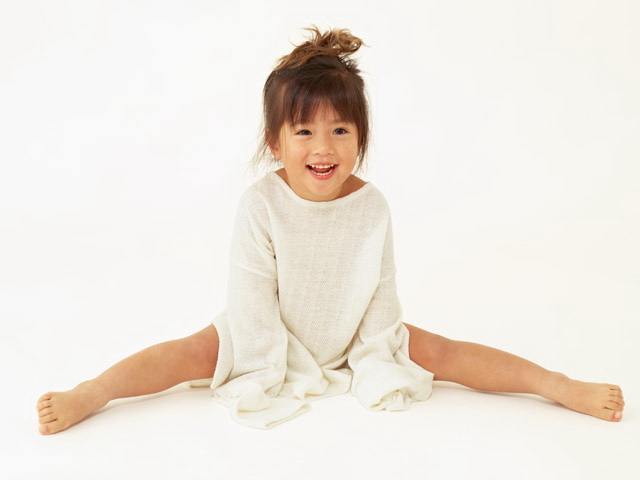Instruction
1
The best age for learning a child's twine 5-7 years. It was during this period the muscles quite flexible and supple, so to train the child able to do the splits is not difficult. First we need to develop active flexibility. This is the magnitude of amplitude of movements, which is created by muscular effort. Engage daily with your baby stretching exercises that help to increase this flexibility.
2
Do the exercises consisting of leg swings. Put the child sideways to the chair, one hand may adhere to his back, another holds the belt. Let dynamically generates swing leg to the front 10 times, then backward, then to the side. Then you need to change the position and repeat the exercise with the other leg. When performing movements keep the sock from the child's well-stretched, knees not bent, the back remains smooth.
3
Then continue with static stretching. Show the child the exercise by bending forward. When you tilt you need to get palms the floor, to stay in this position for 10 seconds, then take its original position. Repeat this exercise 10 times.
4
The following exercise: with the right hand to clasp right leg (the leg bent at the knee) and hard to pull heel to gluteus muscles. Be done 5 times. Repeat with the other leg.
5
Another stretching exercise. Invite a child to put one foot on the chair to the height of the waist, and slowly bend over, pulling hands to the floor. In this case, you must be near to, if necessary, to support the baby. To execute 5 times with each leg.
6
After this warm-up you can go directly to the twine. Let the child gently placed on the longitudinal or transverse splits. You support him in this shoulder. Need to go down to a small pain. But the main thing is not to overdo it. Otherwise, when a sharp pain, the child doesn't want to deal with.
7
Such daily exercises will take 20-30 minutes. And after a couple of weeks your child will be able to do the splits without any effort.
Note
Just remember that this ability how to do the splits, you will need to maintain regular trainings in the future. Try to constantly improve them, so the child is not bored with monotonous perform boring exercises.




